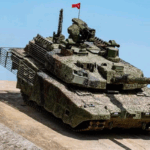Summary by Geopolist | Istanbul Center for Geopolitics:
The article from CIDOB offers a critical examination of the current situation in the Middle East. It has a particular emphasis on the effects of recent violence in Gaza and Lebanon, as well as its implications for international law and the dynamics of geopolitical situations. Among the most important aspects that have been addressed are:
The Devastation of Humanitarian Norms and International Law
The author contends that the current violence in Gaza and Lebanon has resulted in the principal casualty being not only human lives, but also the basic foundation of international law and the norms of war that were established after World War II. This is the primary casualty from the violence that has occurred in these two regions. This legal framework was first backed by the United States of America and the United Nations with the purpose of preventing atrocities of this nature at its inception. Israel’s activities, which can be described as a systematic pattern of targeting civilian infrastructure, including schools and hospitals, have, however, continuously degraded it. This has been the case consistently.
The analysis highlights the fact that Israel’s attitude is not a new phenomena; rather, it is a continuation of a long-standing contempt for international rules that has been evident ever since the country was established in 1948. During military operations in the West Bank, Gaza, and most recently, Lebanon and beyond, this violation of international law has gotten progressively severe. It has also been far more widespread.
The decline in the geopolitical influence of Western powers.
The United States of America and the European Union are subjected to severe criticism in the report for the deterioration of their strategic coherence and influence in the Middle East. The author argues that the United States has failed to moderate Israeli activities, while expressing worry about the situation. Instead, the United States continues to give weapons, which makes it easier for policies to be implemented that are in direct opposition to the values and goals that the United States has articulated.
The nations of Europe are portrayed in a similar manner as being incompetent. The document highlights the fact that the most recent instance in which important European politicians, such as Jacques Chirac of France and Gerhard Schroder of Germany, publicly challenged the policies of the United States in the Middle East was during the Iraq War in 2003. Since that time, Europe has, for the most part, adopted the strategy that the United States has taken, even when it is in direct opposition to the strategic interests or ideals of Europe.
The Never-Ending Nakba and the Dispossession of Palestinians
The paper investigates the notion of the Nakba, which refers to the widespread displacement of Palestinians during the Arab-Israeli War of 1948 and is the Arabic word for “catastrophe.” According to the document, this event was not a solitary occurrence but rather the beginning of a prolonged process of ethnic cleansing and violent dispossession that continues to this day. This period of time continues to this day.
The article makes reference to a Palestinian analyst named Tareq Baconi, who describes the Nakba as a process that is ongoing rather than a historical event that has reached its conclusion. In addition to massive violent escalations, it includes the monotonous routine of colonization and occupation on a daily basis. The recurrent nature of violence, which contributes to the perpetuation of a state of insecurity and instability for both Israelis and Palestinians, highlights the prolonged pain that individuals are experiencing.
Tactical Victories Disguised as Strategic Failures
The article proposes that Israel’s tactical military victories, such as the decapitation of Hizbollah’s leadership or the expansion of operations to Lebanon, Yemen, and Syria, may provide temporary security benefits but ultimately lead to long-term strategic loss. This is the argument that is presented in the document. The long-term security of the Israeli people is jeopardized as a result of these activities, which further destabilize the region and generate animosity that is deeply rooted.
The author argues that Israeli leaders, and Prime Minister Benyamin Netanyahu in particular, have a tendency to emphasize immediate military triumph above permanent peace plans. As a result, they are able to perpetuate a cycle of violence that undermines their own strategic position.
The paper portrays the United States as a superpower that is in decline, noting its failures in Afghanistan and Iraq, its inability to implement sanctions on Russia, China, Iran, and Cuba, and its fast-diminishing credibility in the Middle East. The global consequences of the collapse of US leadership are discussed in this document. The incapacity of the United States government to exercise control over its friend, Israel, despite the fact that Israeli activities directly contradict the strategic objectives of the United States, further exacerbates the perception of a decrease in national security.
The strategic incoherence that exists is something that other global powers are aware of. The President of Russia, Vladimir Putin, has deftly capitalized on these mistakes made by Western government officials. Russia’s participation in Syria, Libya, and the Sahel, which has resulted in the reassertion of its power in the Mediterranean and the wider Middle East, is in striking contrast to the West’s declining sphere of influence, according to the author, who makes this observation.
The European Union’s Failure to Uphold Its Ideals
The European Union, which has continuously positioned itself as a defender of human rights and international law, is depicted as complicit owing to its passivity. This is because the European organization has failed to uphold its ideals. The European Union (EU) is criticized in this document for its failure to hold Israel accountable for its transgressions of the rules of war. As a result, the EU’s reputation as a proponent of international norms is undermined as a result of its double standards.This document places an emphasis on the comparatively restrained response of European politicians to the violence that has occurred in Gaza and Lebanon, in contrast to the strong criticism that has been expressed regarding other global problems. When it comes to human rights, the author believes that this reluctance is evidence of a strong historical bias as well as self-serving geopolitical calculations that favor economic interests and stability over human rights.
The Cynical Pragmatism of Arab Leaders
The paper is similarly critical of Arab governments, which are portrayed as utilizing the Palestinian cause as a pawn in a larger geopolitical game. This is a criticism that is made available in the text. The governments of Algeria and Morocco, for instance, have placed a higher priority on national concerns, such as winning recognition for sovereignty claims, than they have on providing genuine support for Palestinian rights.The document says that this strategy, which is self-serving, has resulted in a loss of connection between Arab leaders and their communities, which has worsened internal instability and discontent. This loss of connection has brought about the aforementioned outcomes. The author believes that the cynicism and dishonesty of Arab regimes contribute to the worsening of the suffering of ordinary Palestinians and to the weakening of the unity of the region.
Russia’s Strategic Gains and Western Errors
In this perspective, Russia is depicted as the geopolitical victor, having effectively reasserted itself as a significant player in the Middle East by capitalizing on the strategic vacuum caused by Western uncertainty and errors. In other words, Russia has effectively reasserted itself as an important player in the region. According to the document, Russia has expanded its influence beyond the Mediterranean region and into the wider region by adopting a more pragmatic and assertive approach. On the other hand, Western leaders are unable to uphold international norms and strike a balance between opposing allies.
Inconsistencies in Western Policy
It also highlights the stark inconsistencies in Western policy, which are as follows: the United States and its allies have refrained from using weapons supplied by the West against Russia, but they have failed to address Israel’s use of similar weapons in operations that violate international rules of engagement. The document makes the argument that the Western world’s moral authority is being undermined and that its influence is being further eroded as a result of this double standard
The Decline of worldwide Order and Future Implications
The main implication of the report is that the disorder in the Middle East is indicative of a more comprehensive decline in the worldwide order that emerged after World War II. This decline is a result of the fact that the Middle East is currently experiencing so much instability. It would appear that the future of global security is growing more dubious as a result of the deterioration of international norms, the diminishing influence of the West, and the growth of regional powers such as Russia.In its conclusion, the document raises questions about the ability of Western countries to take the lead in the face of such strategic incoherence and proposes that the decline of the West will only accelerate if a significant reevaluation of policies is not conducted.
This analysis concludes that the recent violence is not only a local catastrophe; rather, it is a symptom of a more comprehensive geopolitical upheaval that has the potential to transform the power dynamics on a global scale in the years to come.
Read the full report below.







